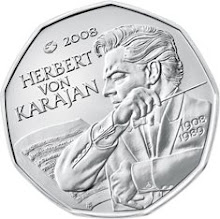Teachers play a critical role in showing students how to play and practice musically. For example, most pieces of music begin and end with the same chord, a somewhat mysterious rule which is actually a result of basic chord progression rules. An understanding of chord progressions is very useful for memorizing. A musical phrase generally starts and ends with softer notes, with the louder ones in between; when in doubt, this is a good default principle. This may be one reason why so many compositions begin with a partial bar – the first beat usually carries the accent and is too loud. There are many books that discuss musical interpretation (Gieseking, Sandor), and we will encounter numerous pointers throughout this book.
Musical training is most rewarding for the very young. Most babies exposed frequently to perfectly tuned pianos will automatically develop perfect pitch -- this is nothing extra-ordinary. Nobody is born with perfect pitch, because it is a 100% learned skill (the exact frequencies of the musical scales are arbitrary human conventions -- there is no natural law that says that middle A should be 440 Hz, most orchestras tune to 442 Hz, and before it was standardized, it had a much larger range of allowable frequencies). If this perfect pitch is not maintained, it will be lost later in life. Piano training of young children can begin around the ages of three to four. Early exposure of youngsters (from birth) to classical music is beneficial because classical music has the highest musical content (complex logic) among all the different types of music. Some forms of contemporary music, by over-emphasizing certain narrow aspects, such as loudness or simplistic music structures that do not stimulate the brain, can detract from musical development by interfering with brain development.
Although you need to be musically gifted to compose music, the ability to play the piano is not that dependent on the musical brain. In fact, most of us are more musical than we give ourselves credit for and it is the lack of technique that limits our musical expression at the piano. We have all had the experience of listening to famous pianists and noticing that one is different from the other -- that is more musical sensitivity than we will ever need to start playing the piano. There is no need to practice eight hours a day; some famous pianists have recommended practice times of less than an hour. You can make progress practicing three or four times a week, one hour each.
Finally, total music education (scales, time signatures, ear training [including perfect pitch], dictation, theory, etc.) should be an integral part of learning to play the piano because each different thing you learn helps all the others. In the final analysis, a total music education is the only way to learn piano. Unfortunately, the majority of aspiring pianists do not have the resources or the time to follow such a path.Statistically, students who excel in playing the piano almost always end up composing music of their own(like me haha). Studying music composition is not a prerequisite for composing. Some teachers frown on learning too much composition theory before starting to compose your own music because that can prevent you from developing your individual style.


No comments:
Post a Comment